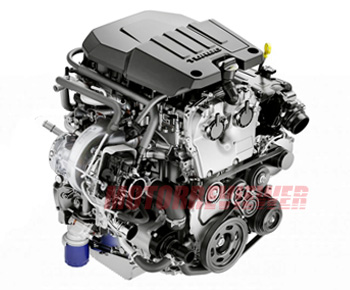The GM 2.7 Turbo engine has reported issues such as oil consumption, coolant leaks, and turbocharger malfunctions. Owners often experience reduced performance and engine warning lights.
The GM 2. 7 Turbo engine, introduced in several Chevrolet and GMC models, has gained attention for both its performance and reliability concerns. While it offers impressive power and efficiency, some users have reported specific problems. Common complaints include excessive oil consumption, which can lead to engine wear, and coolant leaks that may result in overheating.
Turbocharger issues also arise, affecting overall performance. Understanding these challenges helps potential buyers make informed decisions. Regular maintenance and prompt attention to warning signs can mitigate many of these problems, ensuring a better driving experience.
Introduction To The Gm 2.7 Turbo Engine
The GM 2.7 Turbo engine is a modern powerhouse. It offers a blend of performance and efficiency. Designed for trucks and SUVs, it has gained attention for its capabilities.
Brief History
The GM 2.7 Turbo engine debuted in 2019. It was introduced in the Chevrolet Silverado and GMC Sierra. This engine replaced older models, aiming for better fuel economy and power.
Over the years, it has evolved. GM focused on enhancing turbocharging technology. This engine showcases GM’s commitment to innovation in the automotive sector.
Key Specifications
| Specification | Details |
|---|---|
| Engine Type | Inline 4-cylinder Turbocharged |
| Displacement | 2.7 liters |
| Horsepower | 310 hp |
| Torque | 348 lb-ft |
| Transmission | 8-speed automatic |
| Fuel Economy | 20 mpg city / 23 mpg highway |
This engine offers impressive specifications. It delivers strong torque for towing. The 8-speed automatic transmission enhances driving experience.
- Engine Type: Inline 4-cylinder Turbocharged
- Displacement: 2.7 liters
- Horsepower: 310 hp
- Torque: 348 lb-ft
The GM 2.7 Turbo engine is a key player in the market. It combines powerful performance with fuel efficiency. Drivers appreciate the balance it provides.
Common Issues With The Gm 2.7 Turbo
The GM 2.7 Turbo engine has gained popularity for its performance. Yet, it has common issues that owners face. Understanding these problems helps in better maintenance and avoids costly repairs.
Oil Consumption Concerns
One major issue is high oil consumption. Many owners report using too much oil between changes. This can lead to engine wear and increased costs.
- Signs of oil consumption:
- Frequent oil top-ups
- Oil leaks
- Blue smoke from the exhaust
High oil consumption can stem from:
- Piston ring wear
- Valve seal failure
- Turbocharger issues
Addressing oil consumption early can prevent severe engine damage.
Turbocharger Failures
Turbocharger failures are another concern for the GM 2.7 Turbo. A faulty turbo can reduce performance drastically.
| Symptoms of Turbocharger Failure | Possible Causes |
|---|---|
| Loss of power | Worn bearings |
| Excessive noise | Damaged turbine |
| Check engine light | Oil starvation |
Regular maintenance can help avoid turbo issues. Replace oil regularly and check for leaks. Early detection leads to cheaper fixes.
Performance Drawbacks
The GM 2.7 Turbo engine has some performance drawbacks. Drivers often report issues that affect overall experience. Understanding these problems can help potential buyers make informed choices.
Power Delivery Inconsistencies
Many users experience power delivery inconsistencies. This can lead to unexpected performance. Here are some common issues:
- Delayed throttle response
- Uneven acceleration
- Difficulty maintaining speed
These inconsistencies can frustrate drivers. They impact the engine’s reliability, especially in demanding situations.
Fuel Efficiency Debates
There are ongoing debates about the fuel efficiency of the GM 2.7 Turbo. Some claim it’s efficient, while others disagree. Here’s a summary of perspectives:
| Perspective | Details |
|---|---|
| Pro Efficiency | Offers better mileage compared to similar engines. |
| Con Efficiency | Actual fuel consumption can be higher under load. |
Drivers notice varying results based on their driving style. Urban driving often leads to lower efficiency. Highway driving can yield better results.

Credit: m.youtube.com
Technical Glitches
Technical glitches can affect the performance of the GM 2.7 Turbo engine. Drivers often face issues that can lead to decreased efficiency. Understanding these glitches helps in better vehicle maintenance.
Sensor Malfunctions
Sensor malfunctions can disrupt engine performance. These sensors monitor various engine functions. Common sensor issues include:
- Mass Airflow Sensor (MAF): Measures air entering the engine.
- Oxygen Sensor: Monitors exhaust gases for optimal fuel mix.
- Throttle Position Sensor (TPS): Detects the position of the throttle.
Signs of sensor problems include:
- Check engine light activation.
- Poor fuel efficiency.
- Rough engine idling.
Addressing sensor issues early can prevent bigger problems. Regular diagnostics can help identify faults.
Cooling System Vulnerabilities
The cooling system is vital for engine health. Vulnerabilities can lead to overheating and engine damage. Key components include:
| Component | Function |
|---|---|
| Radiator | Dissipates heat from coolant. |
| Water Pump | Circulates coolant through the engine. |
| Thermostat | Regulates engine temperature. |
Common issues in the cooling system include:
- Leaking hoses.
- Clogged radiator.
- Faulty water pump.
Overheating can cause severe engine damage. Regular maintenance checks can prevent these vulnerabilities.
User Experiences
The GM 2.7 Turbo engine has garnered a lot of feedback. Users share their real-life experiences. This section delves into reliability reports and maintenance challenges.
Real-life Reliability Reports
Many drivers have reported mixed experiences with the GM 2.7 Turbo engine. Some praise its performance, while others note reliability issues.
| User Feedback | Experience |
|---|---|
| John D. | Positive: Great power and fuel efficiency. |
| Sarah T. | Negative: Engine stalling after a few months. |
| Mike R. | Mixed: Good acceleration but oil leaks. |
| Amy L. | Positive: Smooth ride and quick response. |
Many users emphasize the importance of regular maintenance. They suggest paying attention to oil levels and routine checks. This can help prevent issues.
Maintenance Challenges
Maintaining the GM 2.7 Turbo engine can be tricky. Users face several challenges that impact their experience.
- Oil Changes: Frequent oil changes are crucial.
- Parts Availability: Some parts are hard to find.
- Cost of Repairs: Repair costs can add up quickly.
- Coolant Leaks: Some users report persistent coolant leaks.
Drivers recommend keeping a maintenance log. This helps track oil changes, filter replacements, and other services. Regular maintenance can improve engine longevity.
- Check oil levels monthly.
- Inspect cooling system regularly.
- Use quality fuel for better performance.
- Address warning lights immediately.
In summary, user experiences with the GM 2.7 Turbo engine vary widely. Reliability reports show both positive and negative aspects. Maintenance challenges can impact overall satisfaction. Staying proactive helps manage these issues.
Comparative Analysis
The GM 2.7 Turbo engine has gained attention in the automotive world. Analyzing its performance against competitors reveals strengths and weaknesses. This section highlights how the GM 2.7 Turbo stands out and evolves from earlier models.
Gm 2.7 Turbo Vs. Competitors
| Engine | Power (hp) | Torque (lb-ft) | Fuel Efficiency (mpg) |
|---|---|---|---|
| GM 2.7 Turbo | 310 | 348 | 20 city / 23 highway |
| Ford 2.7 EcoBoost | 325 | 400 | 19 city / 24 highway |
| Ram 3.0 EcoDiesel | 260 | 480 | 22 city / 32 highway |
The GM 2.7 Turbo offers competitive power and torque. It lags slightly in fuel efficiency but excels in reliable performance. Key points to consider include:
- Power: GM 2.7 Turbo is strong, but Ford leads.
- Torque: Ram’s EcoDiesel offers more torque.
- Fuel Efficiency: Ram’s diesel shows superior mileage.
Evolution From Previous Models
The GM 2.7 Turbo represents significant advancements. Earlier models had less power and efficiency. Key improvements include:
- Turbocharging: Boosts power and reduces lag.
- Variable Valve Timing: Enhances fuel efficiency.
- Lightweight Design: Improves handling and performance.
These advancements make the GM 2.7 Turbo a strong contender. It combines modern technology with solid engineering.
Expert Opinions
Understanding the challenges of the GM 2.7 Turbo engine requires insights from experts. Mechanics and automotive analysts share their experiences and findings. Their opinions shed light on common issues and solutions.
Mechanic Insights
Mechanics have hands-on experience with the GM 2.7 Turbo engine. They often identify recurring problems. Here are some common issues they report:
- Oil Consumption: Many mechanics notice excessive oil usage.
- Turbo Lag: Some drivers experience delays in acceleration.
- Coolant Leaks: Leaks can lead to overheating.
- Fuel Injector Problems: Clogged injectors affect engine performance.
Mechanics recommend regular maintenance. This helps prevent some of these issues. They suggest using high-quality oil for better performance.
Automotive Analyst Reviews
Automotive analysts evaluate the GM 2.7 Turbo engine’s performance. Their reviews often focus on efficiency and reliability. Here’s what they found:
| Aspect | Rating (out of 10) | Comments |
|---|---|---|
| Power Output | 8 | Strong performance for daily driving. |
| Fuel Efficiency | 7 | Decent but could be better. |
| Reliability | 6 | Some reliability issues reported. |
| Maintenance Cost | 7 | Moderate costs for upkeep. |
Analysts stress the importance of regular check-ups. Early detection of issues can save money. They suggest keeping an eye on engine diagnostics.

Credit: www.motorreviewer.com
Navigating The Pitfalls
The GM 2.7 Turbo engine can face several issues. Understanding these problems helps in effective management. Early detection can save time and money. Let’s explore preventive measures and recommended solutions.
Preventive Measures
Taking steps to prevent issues is essential. Here are key preventive measures:
- Regular maintenance: Check oil levels and change oil regularly.
- Quality fuel: Use high-quality fuel to prevent deposits.
- Monitor coolant levels: Keep an eye on coolant to avoid overheating.
- Inspect air filters: Change air filters as needed for better airflow.
- Check for leaks: Look for fluid leaks regularly.
Recommended Solutions
If problems arise, timely solutions are crucial. Here are some recommended solutions:
| Problem | Solution |
|---|---|
| Oil leaks | Replace faulty gaskets and seals. |
| Overheating | Check radiator and replace coolant. |
| Low power | Inspect fuel injectors and clean them. |
| Rough idle | Check spark plugs and replace if needed. |
Follow these recommendations for better performance. Address issues quickly to avoid bigger problems.

Credit: m.youtube.com
Frequently Asked Questions
What Are Common Gm 2.7 Turbo Issues?
Common issues include oil leaks, turbo failure, and engine misfires, affecting performance and reliability.
How To Diagnose Gm 2.7 Turbo Problems?
Check for warning lights, listen for unusual noises, and inspect for leaks or performance drops.
What Causes Turbo Failure In Gm Engines?
Turbo failure can result from oil starvation, excessive heat, or foreign debris entering the system.
Can I Fix Gm 2.7 Turbo Problems Myself?
Basic issues like checking oil levels can be DIY, but complex repairs should be handled by professionals.
How To Prevent Gm 2.7 Turbo Issues?
Regular maintenance, timely oil changes, and quality fuel can significantly reduce the likelihood of turbo problems.
Conclusion
Addressing GM 2. 7 Turbo problems is crucial for maintaining vehicle performance. Regular maintenance and early detection of issues can save time and money. Always consult a professional for repairs. By staying informed, you can ensure your engine runs smoothly, enhancing your driving experience and prolonging the life of your vehicle.
